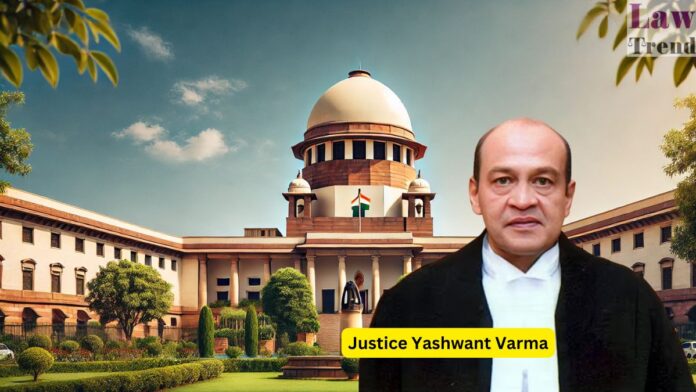The Supreme Court administration has declined a Right to Information (RTI) plea seeking the report of an in-house inquiry committee that reportedly indicted Justice Yashwant Varma of the Allahabad High Court in connection with the cash discovery controversy. The request was also for copies of communication sent by then Chief Justice of India Sanjiv Khanna to President Droupadi Murmu and Prime Minister Narendra Modi.
Citing confidentiality and potential violation of parliamentary privileges, the apex court administration rejected the application. “The information sought pertains to confidential communications between constitutional authorities and disclosure may not be appropriate under the RTI framework,” a source familiar with the rejection noted.
The controversy arose from the alleged discovery of unaccounted cash during a fire incident at Justice Varma’s official residence in Lutyens’ Delhi on the night of March 14, when he was serving as a judge of the Delhi High Court. Justice Varma has repeatedly denied any wrongdoing in his responses submitted to both the Chief Justice of the Delhi High Court and the three-member inquiry panel constituted by the Supreme Court.
The committee—comprising Chief Justice Sheel Nagu (Punjab and Haryana High Court), Chief Justice G.S. Sandhawalia (Himachal Pradesh High Court), and Justice Anu Sivaraman (Karnataka High Court)—completed its inquiry and submitted its report on May 3. The findings reportedly confirmed the cash-related allegations against the judge.
In accordance with the in-house procedure of the judiciary, the Chief Justice of India, Sanjiv Khanna, subsequently wrote to the President and the Prime Minister on May 8, enclosing the report along with Justice Varma’s response dated May 6. Under established norms, the Chief Justice of India may recommend impeachment proceedings if a judge does not resign after being advised to do so in light of adverse findings.
The executive and Parliament now hold the responsibility of determining the next course of action.
Following the initial allegations, Justice Varma was divested of his judicial responsibilities by the Delhi High Court. The Supreme Court Collegium later recommended his transfer to the Allahabad High Court on March 24, where he has not been assigned any judicial work per the Supreme Court’s direction dated March 28.
The committee’s inquiry included examination of over 50 witnesses, including Delhi Police Commissioner Sanjay Arora and the Delhi Fire Service chief, both of whom were among the first responders to the fire incident.
The episode has sparked significant attention in legal and political circles, given the rare instance of a sitting High Court judge being the subject of such serious allegations and subsequent internal judicial scrutiny.




